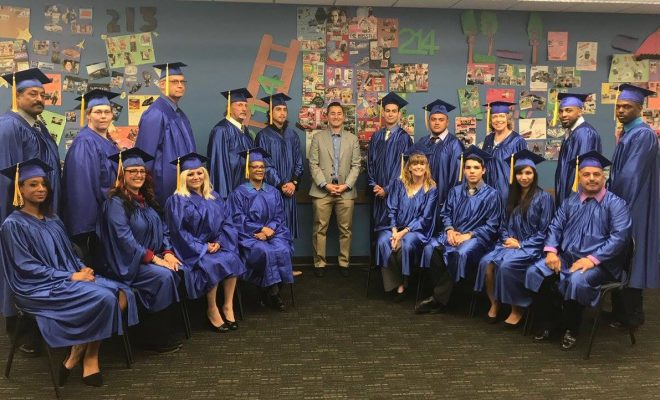 Image provided by Second Chance
Image provided by Second Chance
Lifestyle
San Diego Gets a Second Chance
This is a poignant time to reflect on those who need a helping hand to rewrite their futures. A local nonprofit, aptly named Second Chance Program, is doing exactly that, disrupting the cycles of incarceration and poverty by helping people find their way to self-sufficiency.
Formerly incarcerated individuals are almost ten times more likely to be homeless than the general public. For this reason, Second Chance owns and operates five transitional sober-living homes. These supervised alcohol/substance-free properties provide a safe, stable living environment. Structure, staff, and peer-driven accountability inspires personal responsibility, restores self-esteem, and eliminates isolation by creating a community atmosphere with the ultimate goal of independent living.
A criminal background significantly impacts a person’s lifetime earnings and represents obstacles that make self-sufficiency seemingly impossible. Second Chance workforce readiness program helps each person overcome these obstacles by developing the skills essential to success in the job market and society. More than 90% of graduates secure full-time employment within 30 days of completing the program.
Second Chance is helping with job readiness even earlier with the Second Chance Job Center. In partnership with the San Diego Sheriff’s Department and San Diego County Probation and the San Diego Workforce Partnership, Second Chance staff delivers employment services at the East Mesa Reentry Facility. The Job Center offers internet access to select websites for job search and provide suits for inmates to wear as they practice interviewing. In addition, the Job Center builds on vocational programs already available at the facility, like barista training at an onsite coffee cart, working in a bakery or in the print shop.
For teens and young adults, their Youthful Offender Rehabilitation Program (YORP) uses evidence-based curricula and cognitive behavioral interventions to rehabilitate youth incarcerated in the East Mesa and Kearny Mesa Juvenile Detention Facilities. The program is designed to meet the needs of the county’s most severe and chronic juvenile offenders.
In addition, they serve youth who are from low-income households, at risk of dropping out of school, or transitioning from foster care or justice system facilities through The Workforce Innovation and Opportunity Act (WIOA) program. WIOA includes supportive services, individual service strategies, case management, educational services, work-readiness training, work preparation, and youth development services.
Second Chance also serves the community through additional programs, including the STRIVE Future Leaders, a Youth Garden, and Re-Entry Court. Stories of positive change happen every day at Second Chance. These stories would not be possible without the support of community leaders who generously dedicate their time and resources. If you’d like to donate, you can at: https://www.secondchanceprogram.org/give


0 comments